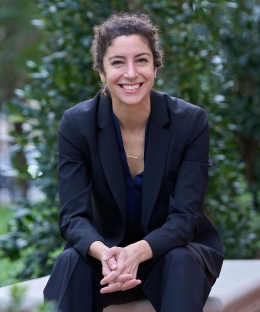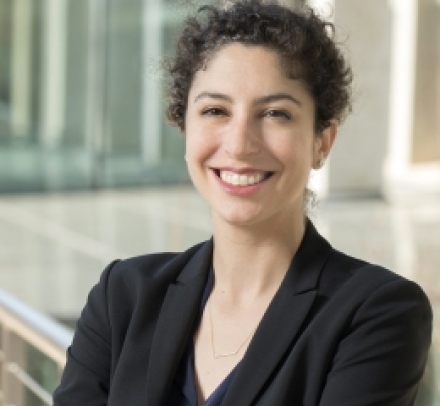
Rebecca Wexler
- Alfred W. Bressler Professor of Law
J.D., Yale Law School, 2016
M.Phil., Cambridge University, 2006
A.B., Harvard College, 2005

J.D., Yale Law School, 2016
M.Phil., Cambridge University, 2006
A.B., Harvard College, 2005
Rebecca Wexler’s teaching and research sit at the intersection of law and technology, with a specific focus on privacy and secrecy in the context of the criminal legal system. Her work has explored topics including trade secrets, data privacy, and law enforcement privilege. Wexler’s scholarship has appeared or is forthcoming in the Harvard Law Review, Stanford Law Review, The Yale Law Journal Forum, NYU Law Review, UCLA Law Review, Texas Law Review, Vanderbilt Law Review, and Berkeley Technology Law Journal, as well as in peer-reviewed computer science publications. She joined Columbia Law School on July 1, 2025.
Wexler served as a senior policy advisor in the White House Office of Science and Technology Policy during spring of 2023, and she has testified before both the House and Senate Judiciary Committees. Her scholarly theories have been proposed for codification into federal law and litigated in multiple courts, including a cert petition to the U.S. Supreme Court. Her article “Privacy as Privilege” received the Privacy Law Scholars Conference Reidenberg-Kerr Award and was named a “Must Read” article by the National Association of Criminal Defense Lawyers. Her op-eds have appeared in the New York Times, Washington Post, and Los Angeles Times, among other outlets, and her work has been featured on NPR, among other media venues.
Wexler clerked for Judge Pierre N. Leval on the U.S. Court of Appeals for the 2nd Circuit, and for Judge Katherine Polk Failla on the U.S. District Court for the Southern District of New York. Prior to joining the Columbia Law faculty, she was the Hoessel-Armstrong Professor of Law at the University of California, Berkeley School of Law, where she was also a faculty co-director of the Center for Law & Technology and the Center for Criminal Law & Justice.

The expert on evidence joins the Columbia Law School faculty as a professor of law.